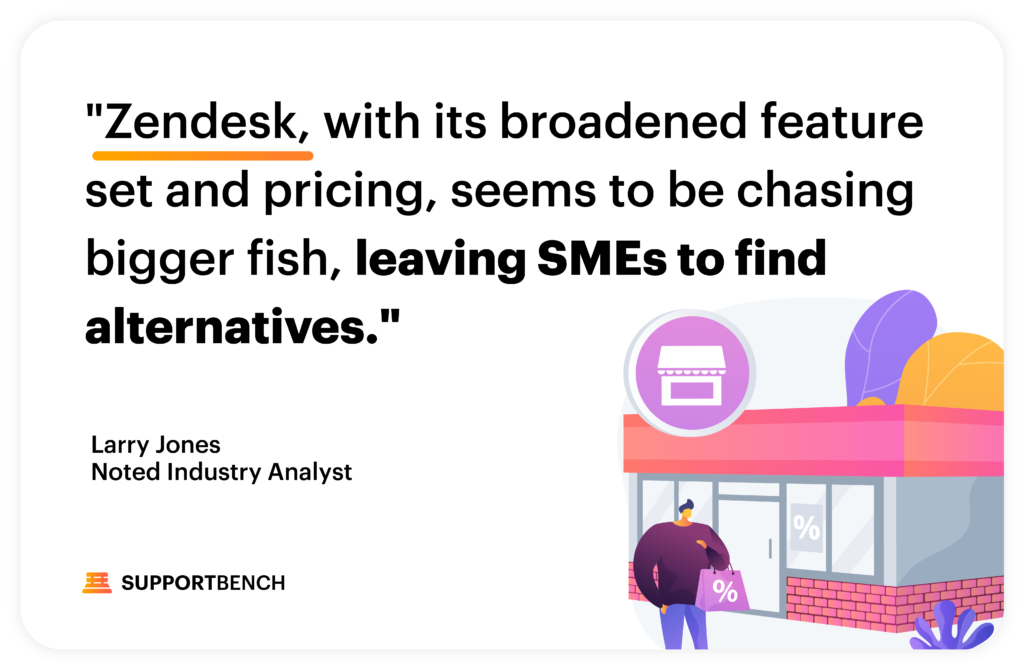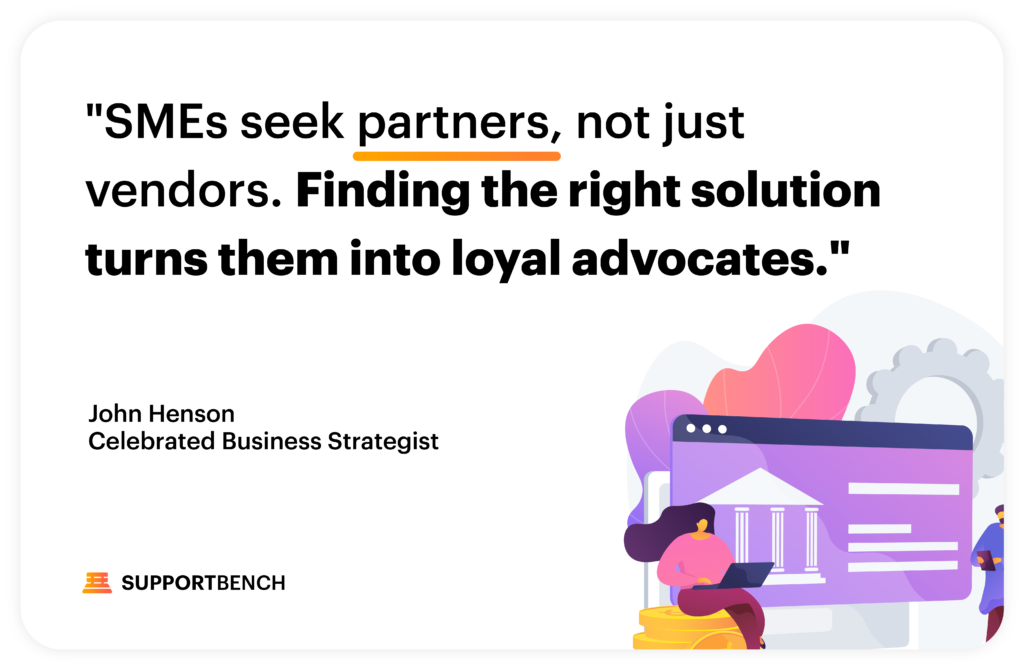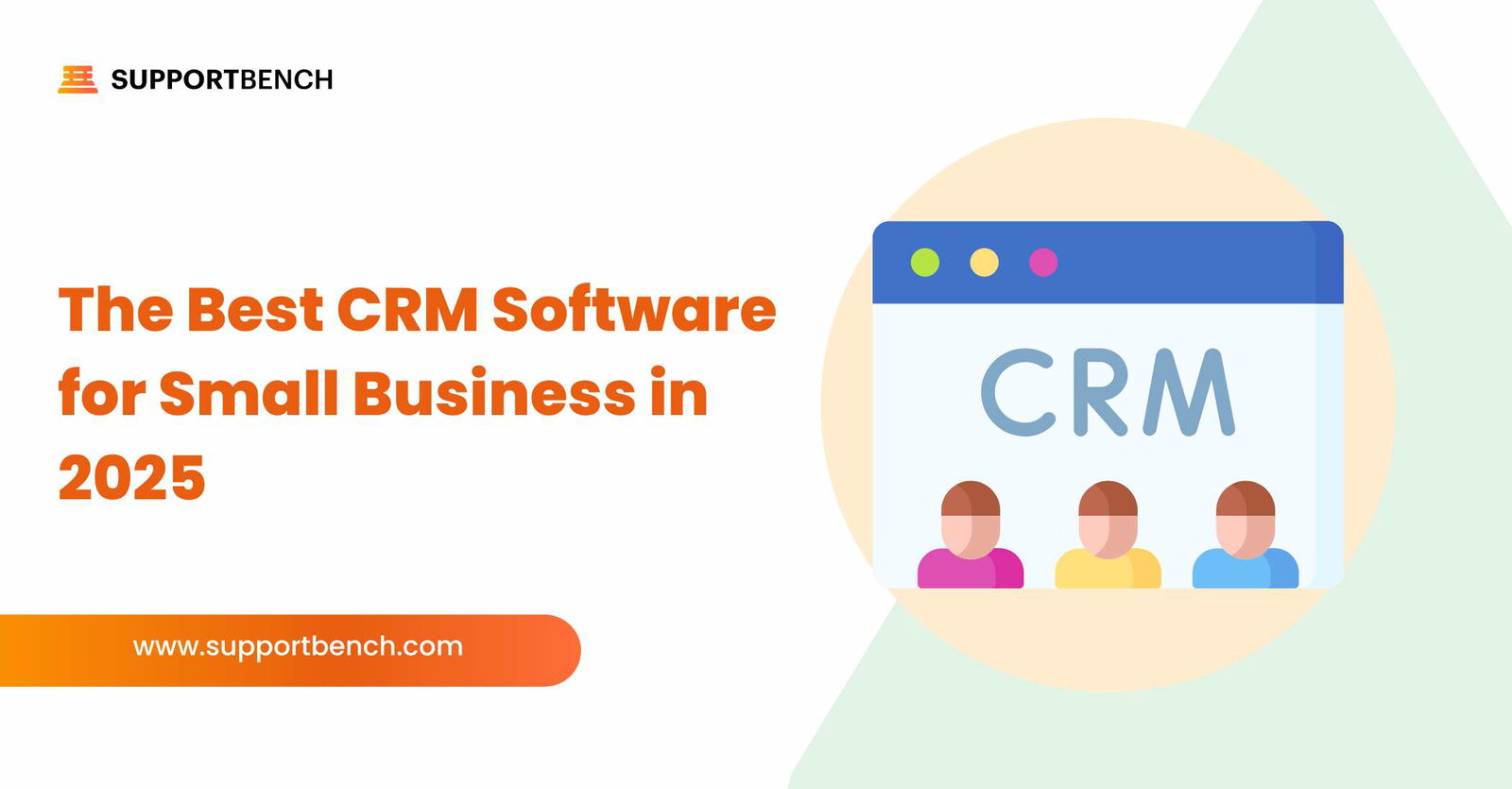Zendesk, has undeniably shifted its gaze in recent years, with a palpable pivot toward larger corporations. However, many small and medium enterprises (SMEs) are feeling sidelined and are questioning whether Zendesk is still the right fit for their needs. This article delves deep into this pressing issue, providing insights backed by the latest statistics, expert opinions, and actionable trends for support leaders.
Zendesk’s Growing Disconnect with SMEs: A Statistical Overview

According to recent statistics, there’s been a 12% decline in SMEs adopting Zendesk in the last two years. This decline contrasts starkly with a 9% increase in adoption by larger enterprises. Larry Jones, a noted industry analyst, remarks, “Zendesk, with its broadened feature set and pricing, seems to be chasing bigger fish, leaving SMEs to find alternatives.”
Actionable Insights: 6 Trends for Support Leaders to Better Their Teams
While understanding the shifts in the market is essential, it’s equally important to identify opportunities to improve and adapt.
Here are six under-the-radar trends that every support leader should be cognizant of:
- Emphasis on Personalized Customer Experiences:
As SMEs, the advantage lies in the ability to offer tailored experiences. With advancements in AI, like sentiment analysis and intent detection, support teams can ensure every customer interaction feels unique and valued. Companies like Supportbench are pioneering in this domain, harnessing AI not just for automation but for personalization, ensuring that SMEs can offer the boutique experiences that larger corporations often struggle with.
For example, a mid-tier e-commerce firm used AI-driven insights to tailor their customer responses based on purchase history and previous interactions and this resulted in a whopping 15% increase in customer retention in just one quarter.
- Proactive Support with Predictive Analytics
Instead of waiting for issues to arise, modern customer support tools are leveraging predictive analytics to anticipate problems and address them beforehand. Supportbench’s customer health scoring is a testament to this trend, enabling companies to be a step ahead in their support game. By analyzing patterns from customer queries, companies are able to predict and proactively address widespread issues, reducing the flood of potential support tickets.
- Deep Dive into Customer Health Scoring
This isn’t about just solving a ticket but understanding the health of your relationship with each customer. Platforms that provide insights into customer experiences, such as the feedback-driven metrics from Supportbench, can offer invaluable data about where a business stands in the eyes of its clientele. Using customer health metrics, companies can pivot thier product strategy to align better with its users’ needs, resulting in an uptick in customer satisfaction and sales.
- Knowledge Base is King:
KCS (Knowledge Centered Service) is increasingly becoming a game-changer. An informed customer is often a happy customer. SMEs should focus on creating comprehensive, searchable, and user-friendly knowledge bases. With Supportbench’s KCS knowledge base, the importance of this trend is crystal clear.
- Security, but Make it Flexible:
Role-based security models, like those implemented by Supportbench, are growing in popularity. They not only ensure that data is secure but also that the right eyes see the right data at the right time, optimizing the support process. By setting up role-based security models, companies are able to streamline its support workflows, ensuring quicker and more relevant responses to customer queries.
- A Holistic View of the Customer:
The trend is moving from transactional interactions to building narratives. A 360-degree customer overview, as championed by platforms like Supportbench, allows businesses to understand the customer’s journey, pain points, and preferences. With a complete view of the customer, you can transform your marketing and support strategies, ensuring that your interactions feel less like business transactions and more like conversations.
Zendesk vs. The Evolving Needs of SMEs
The disconnect isn’t about Zendesk being a subpar product; it’s more about their evolving focus. As SMEs require tools that offer them agility, personalization, and a focus on proactive support, platforms like Supportbench seem to be filling the gap, championing these values that ensure SMEs are not left in the lurch. It’s not a battle of superiority but of alignment.
Remember, in the constantly evolving world of customer support, adaptability is key. As the market landscape changes, SMEs must evaluate whether their chosen platforms align with their unique needs and growth trajectories.
In a world where customer expectations are continually rising, SMEs have the opportunity to lead the way, using innovative tools and strategies to offer unparalleled support experiences.
But if Zendesk continue to ignore the needs of SME’s there could certainly be dire consequences. And, small and medium Enterprises (SMEs) form the backbone of many economies. In the US alone, SMEs contribute to nearly two-thirds of the net new jobs and generate a significant portion of the nation’s GDP. The consequences of sidelining this powerful segment, especially in the domain of customer support, can be severe and far-reaching and include:
Loss of Loyal Clientele and Revenue Stream

SMEs, by their very nature, are often more loyal customers. They depend heavily on tools and platforms that can adapt to their unique requirements. Once they find a reliable service, they tend to stick to it. Ignoring SMEs could mean sidelining a consistent, long-term revenue stream.
John Henson, a celebrated business strategist, mentions, “SMEs are not just looking for vendors; they’re looking for partners. When they find a solution that works, they become advocates and loyal users. It’s a miss for any enterprise-level solution to neglect this.”
Missed Opportunity for Product Innovation
SMEs are agile and innovative, often looking for bespoke solutions that larger companies might not require. By catering to SMEs, platforms like Zendesk can be pushed to innovate and adapt, refining their product continually. Missing out on this audience might result in a stagnant product roadmap.
For instance, the demand for predictive analytics and personalized customer experiences, as championed by SMEs, has led platforms like Supportbench to invest in these innovative directions, ensuring they stay at the cutting edge of technology and customer needs.
Potential Brand Reputation Damage
In the age of social media, unhappy customers can quickly become vocal critics. SMEs, with their close-knit communities, can significantly influence market perceptions. If they feel sidelined or unsatisfied, the negative feedback can spiral, impacting the reputation of companies that neglect them. In contrast, platforms that cater to and support SMEs can enjoy powerful word-of-mouth marketing and endorsements.
The Domino Effect on Larger Enterprises
Believe it or not, the needs of SMEs often reflect the upcoming demands of larger enterprises. SMEs are frequently ahead of the curve when it comes to adopting new technologies or methodologies. By ignoring SMEs, platforms risk missing out on early indicators of broader market shifts, potentially leaving larger clients without crucial features down the line.
Diminished Market Share
While individual SMEs might seem small, collectively they represent a significant market segment. Platforms that sideline SMEs open the door for competitors to step in. Supportbench, with its tailored offerings for SMEs, is a prime example of how there’s a market ready to be served. Ignoring SMEs essentially means leaving money on the table and allowing competitors to gain a foothold.
Erosion of Core Values
Every company starts with a mission, often rooted in serving the customer and providing value. Ignoring any segment, especially one as vibrant and essential as SMEs, can lead to an erosion of these core values. Over time, this can result in not just external consequences but internal disillusionment and a loss of purpose.
Redefining the Future of Customer Support
It’s clear that the shift away from SMEs is not merely a strategy but a potential misstep with considerable repercussions. As the digital landscape continues to evolve, the key will be adaptability, inclusivity, and a genuine understanding of customer needs across the spectrum.
While Zendesk’s current trajectory seems to be distancing itself from SMEs, platforms like Supportbench are stepping up, ensuring that this vital segment receives the attention, tools, and support it truly deserves. In doing so, they’re not just securing a market segment but ensuring the continued evolution and growth of the customer support domain.












